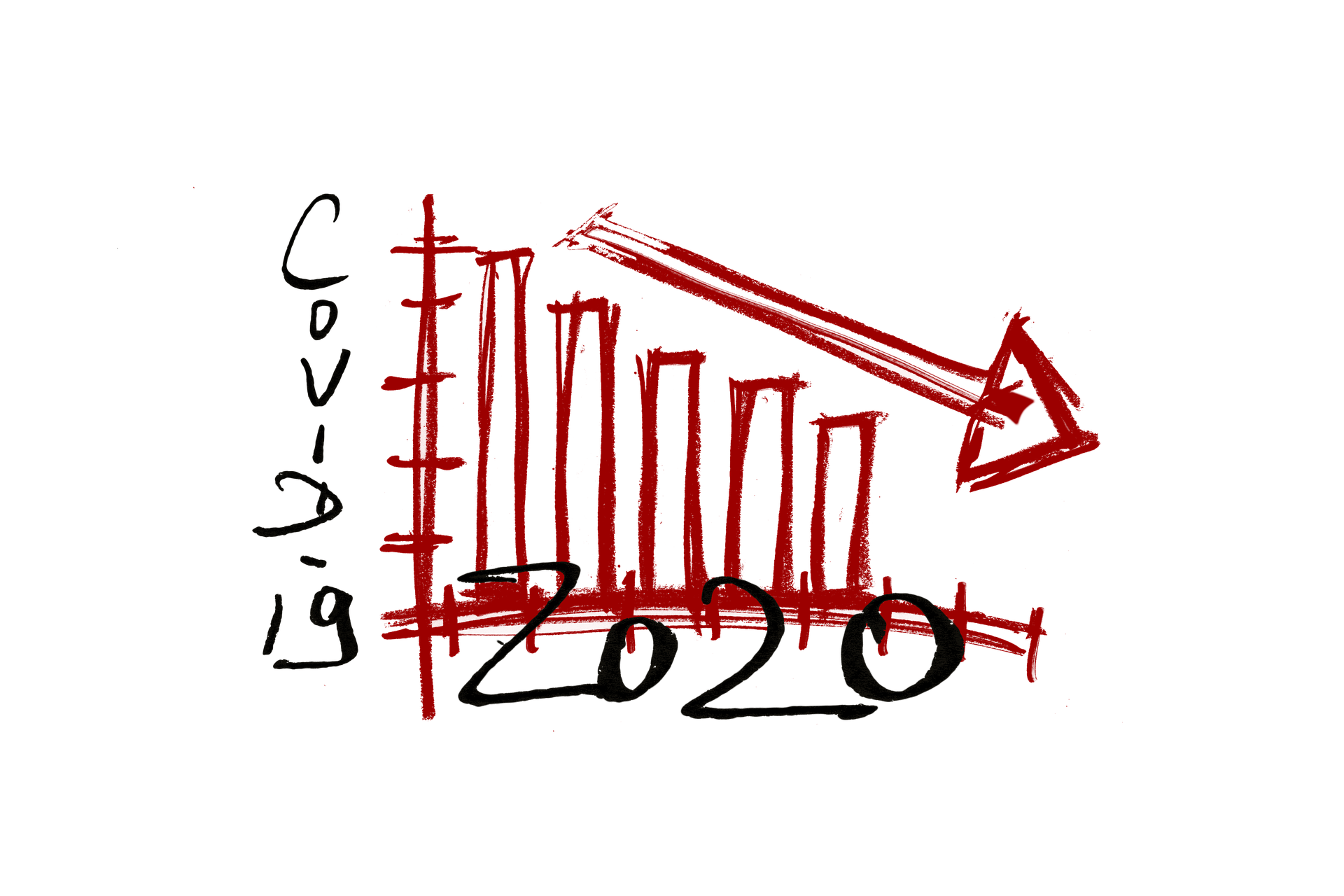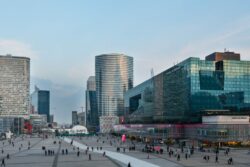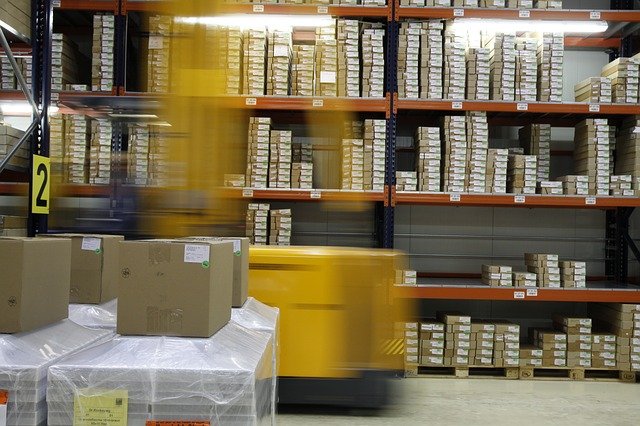

Behind the words: Degrowth
A few days ago, La Fabrique de la Cité explored, in a note, whether a societal project aimed at degrowth would truly be desirable and realistic (Degrowth: a model for the future or a pipe dream?, March 2020). The deep crisis triggered by the Covid-19 pandemic since then has transformed this prospective issue into a reality, the effects of which will be felt by everyone in the months and years to come. There is no longer any doubt that a recession is on the way, both in France and internationally.
The 2020 growth forecasts for the French economy have already been revised downwards: initially estimated at 1.3%, growth is not expected turn into a 1% recession, and even this hypothesis seems optimistic. “Some economists are already talking about an effect of the virus on production that could be two to four times more important, with a decline in GDP that could thus extend beyond 5%,[i] ” writes French daily newspaper Les Échos. This is only the fourth episode of declining economic growth in France since the 1950s: only the oil shock of 1975, the economic crisis of 1993 and the financial crisis of 2009 had previously caused periods of recession[ii]. This will undoubtedly come with a sizeable decrease in household consumption (especially if the confinement should last), compounded by the economic difficulties many companies are currently going through due to the epidemic.
Degrowth, unexpectedly, has arrived. But we must be careful not to confuse it with that other degrowth which self-described “growth objectors” (objecteurs de croissance), who consider the pursuit of economic growth to be fundamentally incompatible with the ecological transition, have been talking about for decades. Many observers, however, readily make the comparison, and see, in the blow dealt to the economy by the current crisis, an unprecedented degrowth experience whose beneficial effects on the environment are already being felt in places. The Chinese example is on everyone’s lips: the 80% decrease in air traffic in February in the country’s 25 largest airports[iii] and the closure of shops and factories, while they threw the Chinese economy into turmoil (“The economic downturn in February is much worse than the estimated 12% drop[iv],” claims the China Chief Economist Forum), have also allowed China to record a 36% decrease in coal consumption in its power plants as well as a 37% drop in its NO2 levels[v].
Some are quick to conclude that the epidemic might actually benefit us, in that it will allow populations to familiarize themselves with a process of degrowth and forced GDP decrease that are considered as positive for the environment. But this is a dangerously cynical idea that conveniently overlooks the destructive and irreversible effects of an economic downturn and, conversely, the proven correlation between GDP and well-being. While GDP is, strictly speaking, an indicator of wealth production, it is also a powerful marker of the level of satisfaction of populations, as numerous scientific studies confirm: “average life satisfaction is higher in countries with greater GDP per capita. The magnitude of the satisfaction-income gradient is roughly the same whether we compare individuals or countries, suggesting that absolute income plays an important role in influencing wellbeing. Finally, studying changes in satisfaction over time, we find that as countries experience economic growth, their citizens’ life satisfaction typically grows, and that those countries experiencing more rapid economic growth also tend to experience more rapid growth in life satisfaction[vi],” wrote a team of economists from the National Bureau of Economic Research in 2010. Degrowth, whether it is unwanted, like that brought on by the COVID-19 epidemic, or planned, like the one growth objectors dream of, is necessarily synonymous with impoverishment, and thus with reduced well-being. Recession and economic depression inevitably lead to higher unemployment, with devastating effects on those concerned: “the studies available in several countries and data obtained recently in France suggest that the consequences of unemployment on health go far beyond an increased frequency in suicides. The incidence of chronic pathologies, cardiovascular diseases, and cancers also seems to be greatly increased among the unemployed, in comparison with workers, [vii]” says the Institute of Economic and Social Research (IRES).
And while degrowth might, at first glance, seem beneficial to the environment in that it triggers a decrease in greenhouse gas (GHG) emissions, it is precisely because it destroys the economic activities that generate well-being, of which GHG emissions are negative externalities. Gernot Wagner, a professor at New York University, notes that “emissions in China are down because the economy has stopped and people are dying, and because poor people are not able to get medicine and food. This is not an analogy for how we want to decrease emissions from climate change. [viii]”
Even if it were not highly damaging from an economic and human standpoint, degrowth would still not be an effective way to fight climate change. To focus on the reduction of GHG emissions linked to the decrease in economic and industrial activities is to ignore the negative effects of degrowth on the environment. Thus the MIT Tech Review notes that the degrowth episode caused by the current epidemic could thwart the fight against climate change: “if the virus leads to a full-blown global pandemic and economic crash, it could easily drain money and political will from climate efforts. [ix]” In addition, the supply and demand shock on oil markets, as well as the fall in electricity prices on wholesale markets, are already dealing damaging blows to low-carbon energy sources, the cost of which has massively increased. It is therefore illusory and even dangerous to oppose economic growth and human well-being on the one hand to the preservation of the environment on the other. It is not to the detriment of human well-being that the ecological transition should or will take place. However, degrowth necessarily affects this well-being, as we are, unfortunately, about to be reminded.
[i] Jean-Marc VITTORI, De petites armes dans une grande guerre, Les Échos, 17 mars 2020. URL : https://www.lesechos.fr/idees-debats/editos-analyses/de-petites-armes-dans-une-grande-guerre-1186325
[ii] Renaud HONORÉ, Coronavirus : le deficit public pourrait se creuser encore plus que prévu, Les Échos, 18 mars 2020. URL : https://www.lesechos.fr/economie-france/budget-fiscalite/coronavirus-le-deficit-pourrait-se-creuser-encore-plus-que-prevu-1186528
[iii] Ian PETCHENIK, Air traffic at China’s busiest airports down 80% since the beginning of they ear, Flight Radar 24, 14 mars 2020, mis à jour le 18 mars 2020. URL : https://www.flightradar24.com/blog/air-traffic-at-chinas-busiest-airports-down-80-since-the-beginning-of-the-year/
[iv] Cité dans : Marjorie ENCELOT, La Chine « a sorti des chiffres [économiques] suffisamment terribles pour être tout à fait plausibles » , Les Échos Investir, 17 mars 2020. URL : https://investir.lesechos.fr/marches/actualites/la-chine-a-sorti-des-chiffres-economiques-suffisamment-terribles-pour-etre-tout-a-fait-plausibles-1900247.php
[v] Lauri MYLLYVIRTA, Analysis : Coronavirus has temporarily reduced China’s CO2 emissions by a quarter, Carbion Brief, 19 février 2020. URL : https://www.carbonbrief.org/analysis-coronavirus-has-temporarily-reduced-chinas-co2-emissions-by-a-quarter
[vi] Daniel W. SACKS, Betsey STEVENSON, Justin WOLFERS, Subjective Well-Being, Income, Economic Development and Growth, NBER Working Paper No. 16441, octobre 2010, JEL No. I31,I32,O11.
[vii] Pierre MENETON, Marie PLESSZ, Émilie COURTIN, Céline RIBET, Marcel GOLDBERG et Marie ZINS, Le chômage : un problème de santé publique majeur, la revue de l’IRES n°91-92, janvier 2018, http://www.ires.fr/publications-de-l-ires/item/5581-le-chomage-un-probleme-de-sante-publique-majeur
[viii] James TEMPLE, Why the coronavirus outbreak is terrible news for climate change, MIT Tech Review, 9 mars 2020. URL : https://www.technologyreview.com/s/615338/coronavirus-emissions-climate-change/
These other publications may also be of interest to you:

Behind the words: Recovery

Feeding and fueling the city
La Fabrique de la Cité
La Fabrique de la Cité is a think tank dedicated to urban foresight, created by the VINCI group, its sponsor, in 2010. La Fabrique de la Cité acts as a forum where urban stakeholders, whether French or international, collaborate to bring forth new ways of building and rebuilding cities.
























